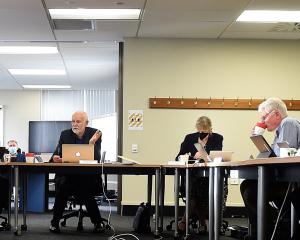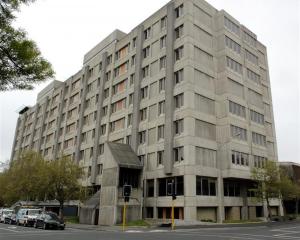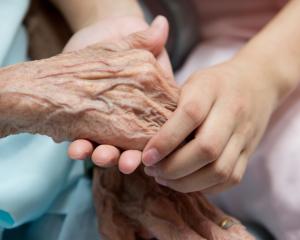The views of health staff concerning a failed bid to restructure the upper levels of the Southern District Health Board have been released after the board sought for months to keep them secret.
This month the board released the submissions, some of which are fairly forthright in their views, at the request of the Office of the Ombudsmen.
The board previously cited the need of staff to express themselves frankly.
Of 167 submissions, 10 requested anonymity and were not released.
Last May chief executive Brian Rousseau proposed a top-level restructuring following the merger of the Southland and Otago boards.
Proposals included a regional chief medical officer (with a deputy), a regional chief operating officer, a regional allied health director, disestablishing the deputy chief nursing and midwifery officer's role.
Also proposed was merging Otago and Southland clinical groups, and reshuffling the composition of clinical and administrative groupings. Some proposals would have resulted in job losses; for instance moving from eight clinical groupings to four could have trimmed top staff from 28 to 18.
The board backed down on the substance of the changes after receiving feedback, and no jobs were lost.
Submitters' concerns included fears the clinical groupings were too big and were arranged wrongly; that senior managers and clinical leaders' roles would be too demanding, and entail too much time travelling between hospitals; a potential loss of clinical leadership, especially at Southland Hospital.
Many criticised the speed of implementing the proposed changes.
David Tulloch, then divisional director of surgery (Southland), who last December was appointed Southland's chief medical officer, said the merged clinical groupings would be "fraught with political and geographical infighting, such that there will need to be enormous numbers of face-to-face meetings to get the warring factions to talk to each other".
Southland medical director Dr Alasdair Millar, said the proposals had already "damaged staff morale and introduced personal and institutional uncertainty" .
Dr Millar was critical of the idea of top staff travelling between hospitals.
"That one might successfully administer widely geographically separate sites by a travelling circus is a fantasy."
The senior doctor also criticised the board's "one service, many sites" guiding ethos, saying he did not know what it meant.
He did not like "reducing complex management issues to slogans".
Otago's chief medical officer, Dick Bunton, offered to fill out time sheets for management to make the point the role needed more "full-time equivalent" hours.
He also believed chief medical officers were needed in both Dunedin and Southland, as well as a regional head.
He supported the "end game" of working regionally but the proposals were too radical.
He warned "the union" (Association of Salaried Medical Specialists) would create "immense conflict" if the board persisted with the "big bang theory" of change.
Mr Bunton advised a "change in strategy" whereby clinical staff led the creation of regional services in a more gradual way.
Mental health divisional manager personal assistant (Southland) Liz Hunter feared Southland's "financial savings and national accolades for service excellence would be diluted" by merging with Otago's mental health service.
Judith Kissell, surgical service improvement manager (Southland), feared for patients, particularly the elderly, and that Southland Hospital would be marginalised.
"Already I see an attitude of some clinicians and managers in Otago opting for the easy option of sending patients to Otago, when other options are available in Southland for this surgery to occur. The comment when challenged was `This will happen a lot more now with the [Otago and Southland DHB] merger'."











